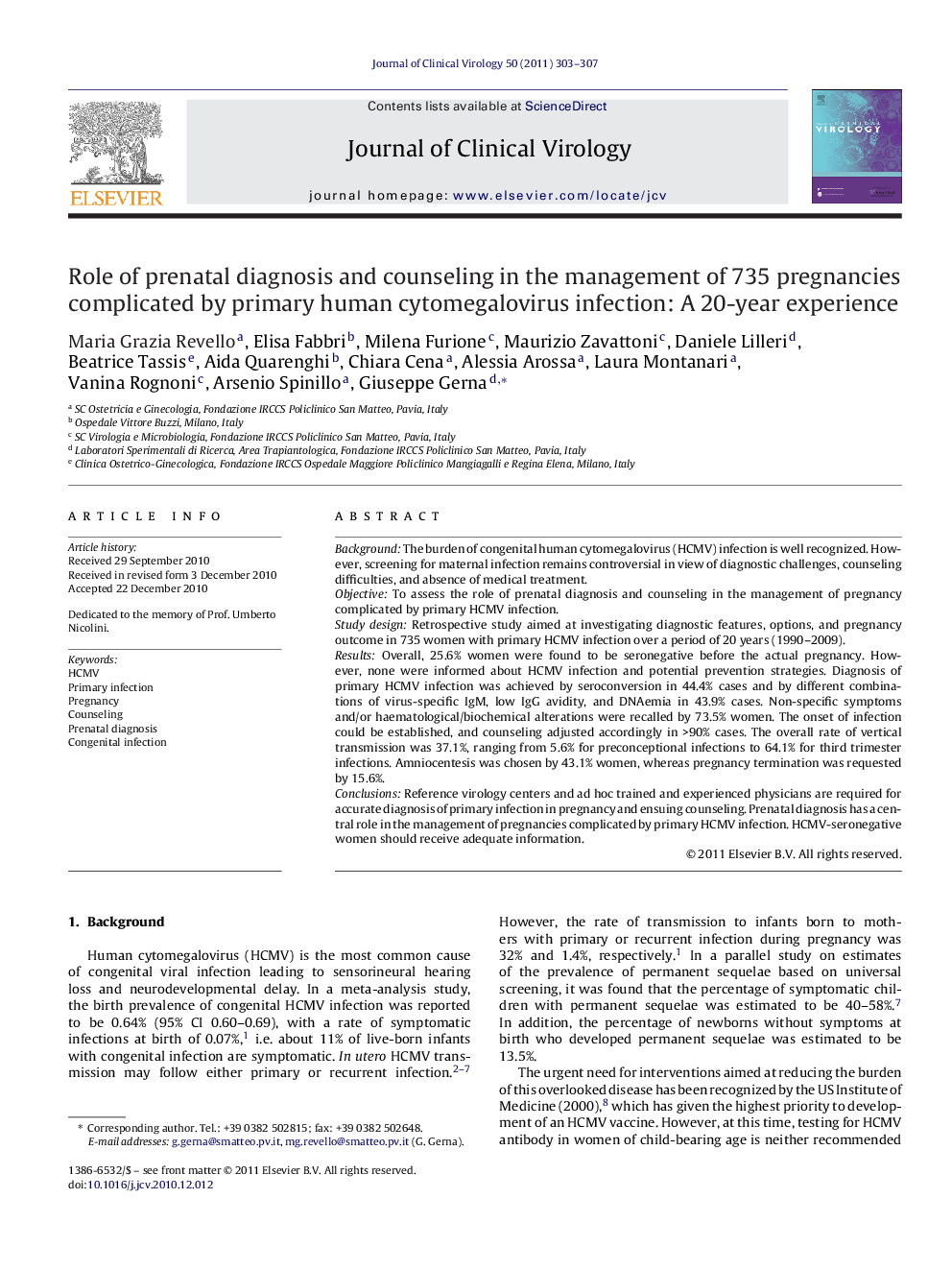| Article ID | Journal | Published Year | Pages | File Type |
|---|---|---|---|---|
| 3369149 | Journal of Clinical Virology | 2011 | 5 Pages |
BackgroundThe burden of congenital human cytomegalovirus (HCMV) infection is well recognized. However, screening for maternal infection remains controversial in view of diagnostic challenges, counseling difficulties, and absence of medical treatment.ObjectiveTo assess the role of prenatal diagnosis and counseling in the management of pregnancy complicated by primary HCMV infection.Study designRetrospective study aimed at investigating diagnostic features, options, and pregnancy outcome in 735 women with primary HCMV infection over a period of 20 years (1990–2009).ResultsOverall, 25.6% women were found to be seronegative before the actual pregnancy. However, none were informed about HCMV infection and potential prevention strategies. Diagnosis of primary HCMV infection was achieved by seroconversion in 44.4% cases and by different combinations of virus-specific IgM, low IgG avidity, and DNAemia in 43.9% cases. Non-specific symptoms and/or haematological/biochemical alterations were recalled by 73.5% women. The onset of infection could be established, and counseling adjusted accordingly in >90% cases. The overall rate of vertical transmission was 37.1%, ranging from 5.6% for preconceptional infections to 64.1% for third trimester infections. Amniocentesis was chosen by 43.1% women, whereas pregnancy termination was requested by 15.6%.ConclusionsReference virology centers and ad hoc trained and experienced physicians are required for accurate diagnosis of primary infection in pregnancy and ensuing counseling. Prenatal diagnosis has a central role in the management of pregnancies complicated by primary HCMV infection. HCMV-seronegative women should receive adequate information.
